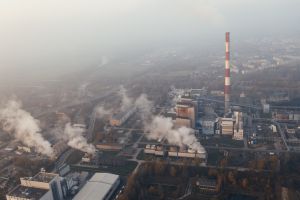This report outlines two recommendations for how cities can address climate change overall and ultimately succeed in a lower-carbon world.
Executive Summary
What role do global cities play in addressing climate change, and how can they succeed in a lower-carbon world? This report reviews the current national and international efforts being taken to address climate change and the impacts of these efforts on cities, as well as some examples of how cities are taking action through local policy. Staying competitive will require global cities to identify and implement policies that go beyond efforts to lower carbon emissions and minimize the economic impacts. In the new carbon-constrained world that is already emerging, cities should seek to position themselves to benefit from the changes to come. Two recommendations are presented:
- Benchmark and develop a plan of action.
- Implement a defined process to compare cities to one another.
- Develop an active policy and regulatory position to encourage energy investment in cities.
- Identify opportunities to improve and apply specific best practices that cities can use to establish themselves as centers of energy innovation and investment.
These two broad strategies would not require large funding outlays and would likely provide insulation from some of the coming effects of climate change for the city that chooses to engage in this process. Also, the implementation may attract economic development.
